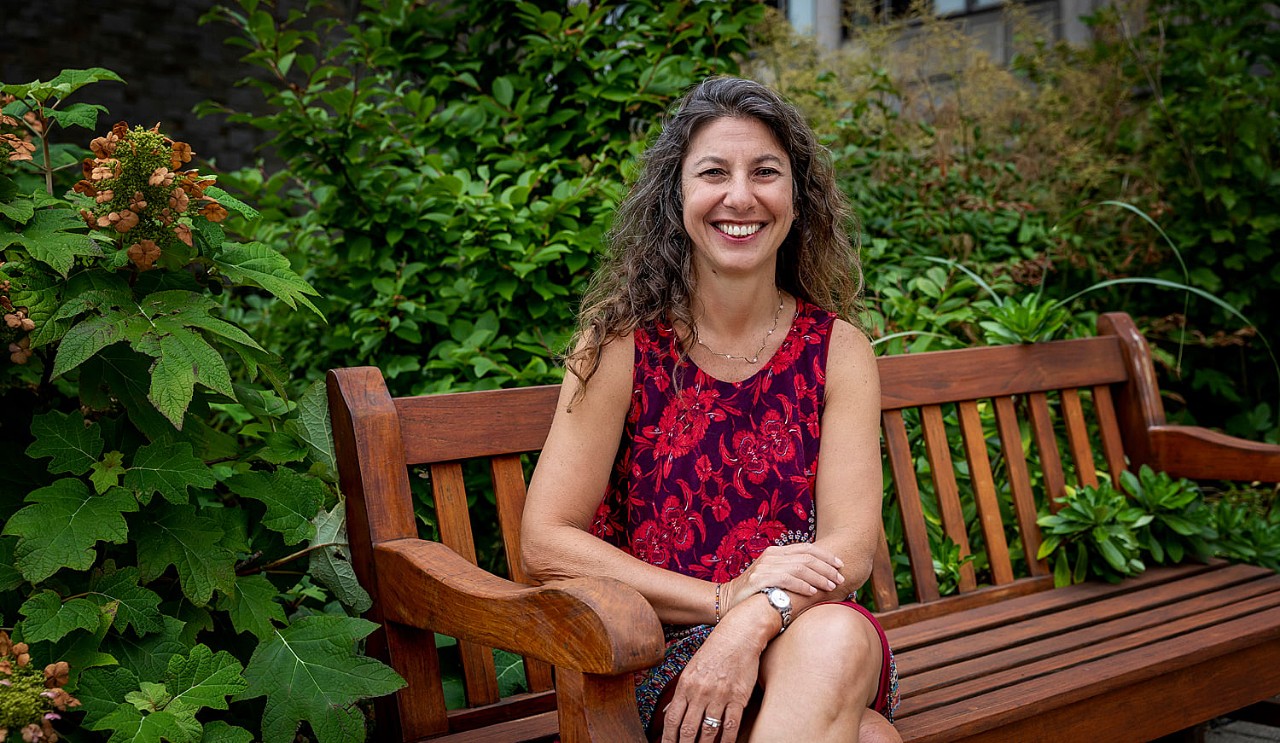Smart Playgrounds Project aims to make computer science child's play
Imagine a playground that gives young children an introduction to computer science even as they romp around.
A group of researchers including Marina Bers, the Augustus Long Professor of Education at the Lynch School of Education and Human Development, aims to create a first-of-its-kind school playground—one where slides, monkey bars, and swings can be programmed by kids through their interaction. And the Boston College Children’s Center will be one of the early proving grounds.
Funded by nearly $3 million in grants from the National Science Foundation, the “smart playgrounds” project—a collaboration between Bers, the UC Irvine (UCI) School of Education and Tufts University’s School of Engineering—will offer early learners hands-on experience with computer science and computational thinking skills that are increasingly important at all levels of education.
“In our digitally rich world, children need opportunities to become designers and producers of technologies, so they can develop computational thinking to solve problems,” said Bers. “Playgrounds are wonderful spaces to explore concepts such as cause-and-effect and sequencing, while learning through play, socialization, and collaboration.”
The four-year effort launched in January with the first in a series of co-design sessions, where researchers learned from Latinx parents and kindergarteners at the Santa Ana Unified School District in California and the Santa Ana Early Learning Initiative about their favorite games and activities at their existing play structures.
“Part of our process is trying to understand the realities and lived experiences of the families and the communities, and adjusting our ideas to complement their ‘funds of knowledge’ in a culturally sustaining way,” said UCI Professor of Education June Ahn, a co-principal investigator on the grant.
UCI Assistant Professor of Education Andres Bustamante, a co-principal investigator, said, “We’re taking computer science concepts out of the screen and reinforcing them in physical, playful, real-world spaces.”

Marina Bers (Caitlin Cunningham)
According to Bers, the creator of the popular kids coding app ScratchJr and KIBO robotics, additional co-design sessions will be held with families in Boston, and early prototypes will be tested by children at the BC Children’s Center. She and Chris Rogers, the John R. Beaver Professor of Mechanical Engineering at Tufts, and one of the designers of LEGO MINDSTORMS educational sets, also serve as co-principal investigators.
Rogers will build prototypes of the programmable play structure in his Medford lab, incorporating switches, actuators, sensors, and control boards. Children will then have the opportunity to experiment with it and provide feedback before the designs are finalized and installed. The team of four researchers from the East and West coasts envisions innovative elements such as music—perhaps a moderate-tempo Latin American rhythm, or a lively mariachi tune—that matches the speed of a child descending on a slide.
By focusing on playgrounds at school sites, the researchers can work with teachers to incorporate computational thinking and play into lessons both inside and outside the classroom. While students will still have the opportunity for free play, organized activities on the play structures will be scheduled, followed up by classroom lessons that teachers will use to reinforce the learning objectives.
The project emerged from early conversations between Bers and Rogers, who have a long history of collaboration from when she was at Tufts. Then, when thinking about how to significantly impact broader communities, Bers reached out to Bustamante and Ahn, who had previously worked with Santa Ana community groups.
“This is an exciting opportunity to extend the previous work of my DevTech research group,” said Bers. “Over two decades of work, we have learned how to create technological playgrounds with ScratchJr and KIBO robotics inside classrooms, now we want to bring our expertise outside the school.”
While the research project calls for piloting at BC Children’s Center, and then retrofitting two or three playgrounds used by over 500 kindergarteners at SAUSD schools, it may expand to other school playgrounds and community parks across the country, said Bers.
The ScratchJr application Bers and colleagues launched nearly a decade ago has made computer coding accessible to younger children, attracting more than 50 million users worldwide. Many educators and parents are eager to introduce young people to computer science, and the skills are increasingly being added to K-12 curricula.
